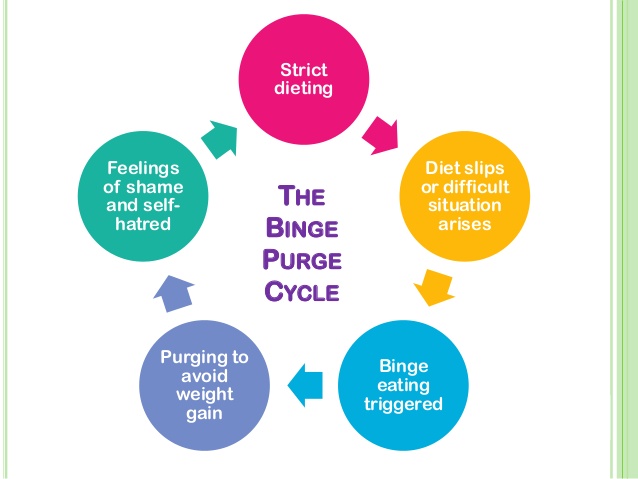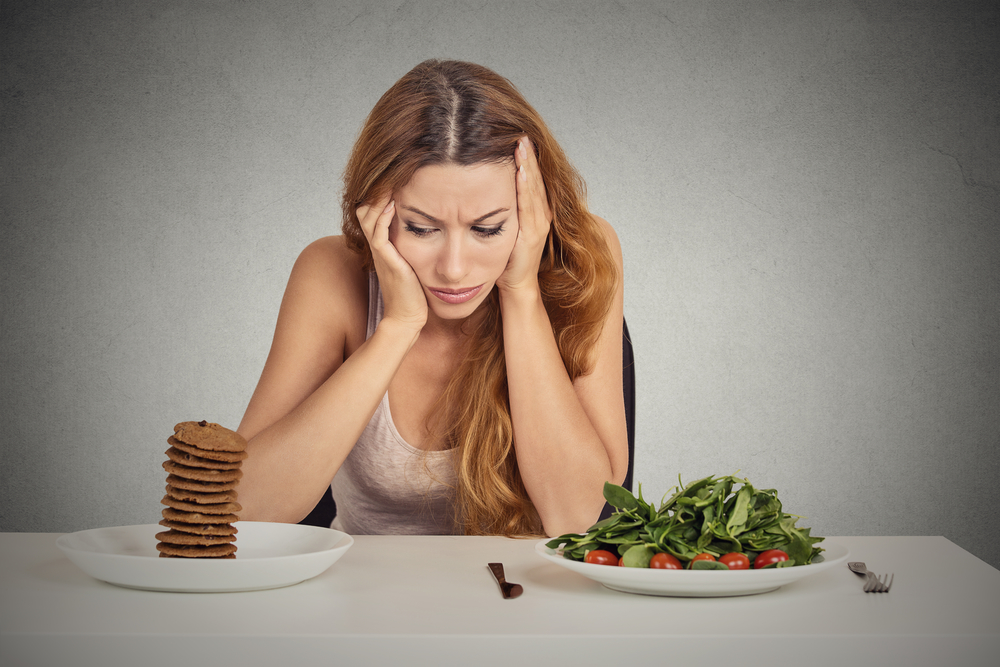
In a world where food is not only sustenance but also a source of comfort, celebration, and connection, it’s no surprise that many of us have complex relationships with what we eat. For some, however, this relationship can take a darker turn into a behavior known as binge eating. Binge eating disorder (BED) is characterized by episodes of consuming large quantities of food within a short period, often accompanied by feelings of loss of control and distress. Beyond the physical effects, binge eating can significantly impact one’s quality of life in various ways. In this article, we’ll delve into the psychological, emotional, and social consequences of binge eating and shed light on the importance of seeking help.
The Vicious Cycle
Binge eating often gives rise to a vicious cycle that’s challenging to break free from. It starts with feelings of stress, sadness, boredom, or even happiness, which trigger the urge to overeat. During a binge episode, large amounts of food are consumed rapidly, leading to physical discomfort and guilt. The aftermath of a binge can result in self-criticism, low self-esteem, and promises to “do better” next time. However, the emotional toll of these negative feelings often becomes a trigger for the next binge, perpetuating the cycle.

Psychological Impact
Binge eating has a profound impact on psychological well-being. The guilt and shame that follow a binge can lead to increased anxiety and depression. Negative self-talk becomes a constant companion, eroding self-confidence and reinforcing a distorted body image. The constant preoccupation with food and weight can consume one’s thoughts, leaving little mental space for other activities or goals. Over time, this psychological burden can diminish overall life satisfaction and the ability to enjoy everyday experiences.

Emotional Consequences
The emotional toll of binge eating is far-reaching. As individuals grapple with the secrecy of their eating behavior, they might withdraw from social interactions and isolate themselves to avoid judgment. Feelings of loneliness can intensify, leading to a sense of disconnect from friends and family. The emotional highs and lows that accompany the binge eating cycle can further disrupt emotional stability, making it challenging to manage stress and cope with life’s challenges effectively.
You can also readhttps://dwaherbals.com/the-surprising-benefits-of-counting-calories/

Social Isolation
Binge eating can lead to social isolation in multiple ways. Firstly, the shame associated with the disorder can prevent individuals from seeking help or confiding in loved ones. Secondly, the unpredictable nature of binge episodes might cause them to decline invitations to social gatherings or events where food is present, leading to further detachment from their social circle. Over time, this isolation can deepen the emotional wounds and reinforce the negative cycle.

Physical Health Ramifications
Beyond the emotional and psychological consequences, binge eating takes a toll on physical health as well. Consuming large amounts of high-calorie, low-nutrient foods can lead to weight gain, obesity, and related health issues like diabetes, heart disease, and joint problems. The constant fluctuations in eating patterns can disrupt metabolism and digestion, causing discomfort and irregularity. This interplay between physical and mental health underscores the holistic impact binge eating has on one’s quality of life.

Seeking Help and Healing
The journey to overcoming binge eating is challenging but not impossible. Seeking professional help, such as therapy or counseling, can provide the necessary tools to break the cycle. Cognitive-behavioral therapy (CBT) has shown promise in helping individuals develop healthier relationships with food, while addressing the underlying emotional triggers. Support groups and online communities can also offer a sense of belonging and understanding that combats the isolation often associated with BED.
Conclusion
Binge eating’s impact goes beyond the immediate act of consuming copious amounts of food. It infiltrates every facet of life, affecting mental, emotional, and physical well-being. Acknowledging the issue, seeking help, and fostering self-compassion are crucial steps towards healing. Remember, you are not alone, and there is a path to a healthier relationship with food and a better quality of life.
Dr Sushil is a researcher and founder of D WA Herbals with objective of providing healthy longevity to society. His aim is to develop food and drink-based products by using the inherent qualities of traditional herbs by optimizing their effect through modern technology, making our products extremely user-friendly. The research is focused on various lifestyle issues such as anxiety, stress, metabolism, digestion, immunity and may more which impact the health and lifestyle.
© 2023 DWA HERBALS. All Rights Reserved. Designed by NXlogy